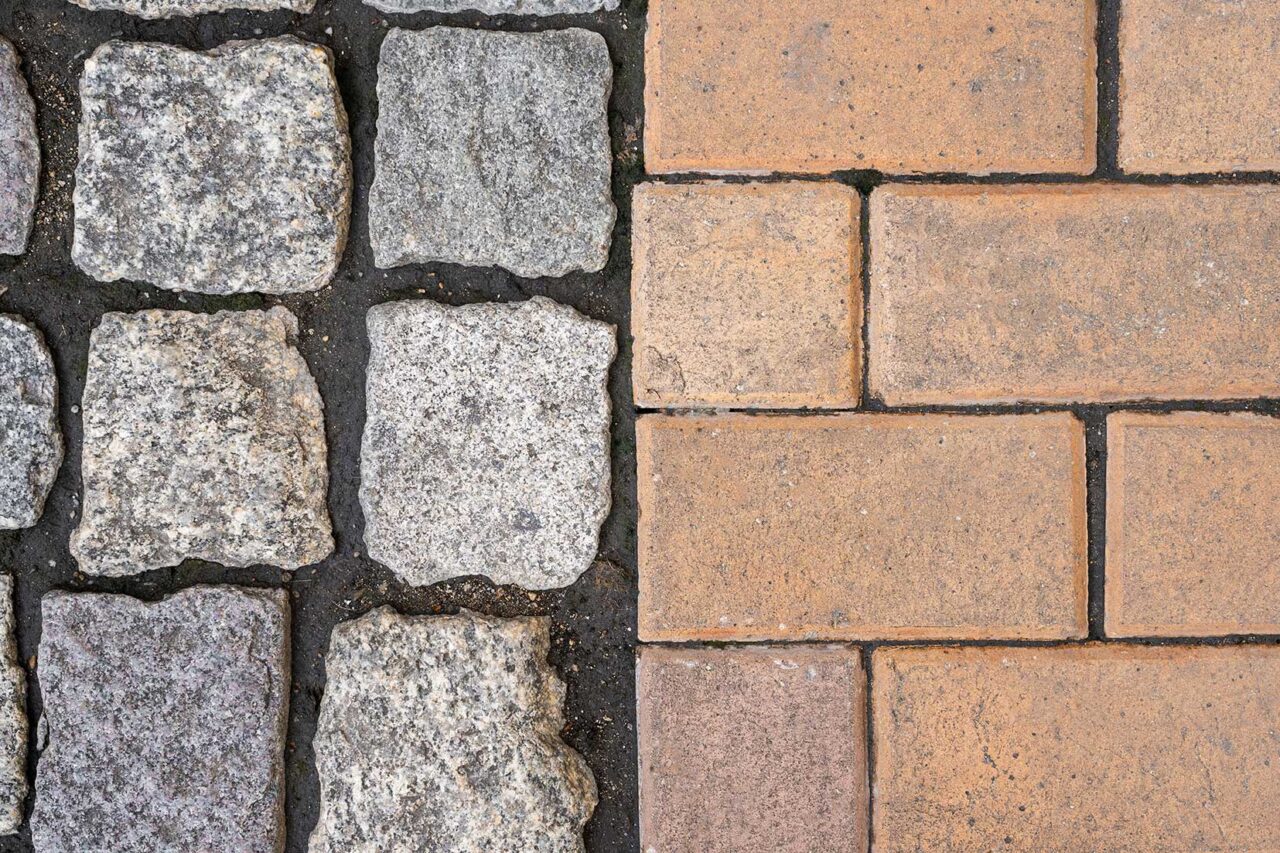Choosing Between Brick and Concrete Pavers: A Comprehensive Guide by FloorPup
When enhancing your outdoor space, selecting a suitable paving material is crucial. Choosing between brick and concrete pavers goes beyond aesthetics; it reflects your taste, lifestyle, and long-term investment. At FloorPup, we understand the nuances involved in this decision-making process. In this in-depth guide, we will explore the intricacies of brick and concrete pavers, helping you make an informed choice that resonates with your vision.
Brick Pavers: Timeless Elegance and Enduring Charm
Brick pavers, reminiscent of historical pathways and vintage charm, offer a unique blend of elegance and longevity. Delving deeper into their features unveils a world of possibilities for your outdoor project.
Advantages of Brick Pavers:
- Color Retention: One of the standout features of brick pavers is their ability to retain their natural color over time. Unlike concrete, bricks do not fade significantly, ensuring your walkway or patio maintains its allure for years.
- Historical Appeal: Bricks have a timeless quality that adds a touch of historical charm to any space. Their rustic aesthetic complements various architectural styles, making them popular for traditional and heritage-inspired homes.
- Durability: While bricks can chip under extreme pressure, they are remarkably durable. They withstand the test of time, making them an investment that pays off in the long run.
- Environmental Friendliness: Brick pavers, made from natural clay, are eco-friendly. Their production involves minimal ecological impact, aligning with sustainable building practices.
Disadvantages of Brick Pavers:
- Higher Initial Cost: Brick pavers tend to have a higher upfront cost than concrete. However, their durability often justifies the initial investment, making them a wise choice for a long-lasting solution.
- Limited Color Options: Bricks come in a limited range of colors due to their natural composition. While this limitation can restrict design choices, it also ensures a warm, earthy palette for your outdoor space.
Concrete Pavers: Versatility and Modern Appeal
Concrete pavers, on the other hand, offer versatility, modern designs, and a spectrum of colour choices. Understanding their advantages and challenges can aid in your decision-making process.
Advantages of Concrete Pavers:
- Cost-Effectiveness: Concrete pavers are generally more affordable upfront, making them an attractive option for budget-conscious homeowners. Their lower initial cost provides an excellent foundation for various outdoor projects.
- Design Flexibility: Concrete pavers come in various shapes, sizes, and colors. This diversity allows for intricate designs, from geometric patterns to custom motifs, enabling you to personalize your outdoor space according to your preferences.
- Ease of Installation: Concrete pavers are uniform in shape and size, simplifying the installation process. Their consistent dimensions make them ideal for do-it-yourself enthusiasts, offering an opportunity for creative expression without the complexities of irregular dimensions.
- Innovation and Quality: Advances in concrete technology have led to the creation of high-quality, durable pavers. Modern concrete pavers often incorporate additives and sealants that enhance their strength and longevity, ensuring your outdoor area withstands the test of time.
Disadvantages of Concrete Pavers:
- Potential Color Fading: Concrete pavers, especially those with pigmented colors, can experience fading over time, particularly in areas exposed to direct sunlight. Proper sealing and maintenance can mitigate this issue, preserving the vibrant hues of your outdoor space.
- Maintenance Requirements: While concrete pavers are relatively low-maintenance, periodic sealing is advisable to maintain their color integrity. Sealants protect against fading and enhance the longevity of the pavers, making them a worthwhile investment in preserving your outdoor design.
- Surface Erosion: Continuous exposure to the elements can lead to surface erosion, gradually revealing the aggregate beneath the concrete. While this natural process adds character to the pavers, regular maintenance can ensure the surface remains smooth and visually appealing.
Conclusion: Elevating Your Outdoor Space with FloorPup
At FloorPup, we are dedicated to transforming your outdoor vision into reality. Whether you lean towards the classic charm of brick pavers or the contemporary appeal of concrete, our expert team is here to guide you. Consider the architectural style of your home, the surrounding landscape, and your preferences when deciding.
When choosing FloorPup for your outdoor project, you invest in premium materials and craftsmanship and benefit from our wealth of expertise. We understand that your outdoor space is an extension of your home, reflecting your lifestyle and personality. Let us collaborate with you, ensuring your walkway, patio, or driveway becomes a masterpiece that harmonises with the natural beauty of your surroundings.
Embrace the art of outdoor living with FloorPup – where creativity meets durability, and your vision comes to life. Choose us for an exceptional outdoor experience that stands the test of time.
FAQ 1: What Factors Should I Consider When Choosing Between Brick and Concrete Pavers for My Outdoor Project?
Answer: When deciding between brick and concrete pavers, consider your budget, aesthetic preferences, and the level of maintenance you are willing to undertake. Brick pavers offer timeless charm and colour retention, making them ideal for traditional settings. On the other hand, concrete pavers provide versatility in design, a wide range of colours, and cost-effectiveness. Evaluate your priorities, style preferences, and long-term vision to choose your outdoor space best.
FAQ 2: How Can I Prevent Color Fading in Concrete Pavers?
Answer: Consider applying a high-quality sealant for outdoor use to prevent colour fading in concrete pavers. Sealants act as a protective layer, shielding the pavers from UV rays and environmental factors. Regularly cleaning and resealing the pavers every few years can significantly extend their vibrant appearance. Proper maintenance not only preserves the colour but also enhances the overall longevity of your concrete pavers.
FAQ 3: Are Brick Pavers Environmentally Friendly?
Answer: Yes, brick pavers are environmentally friendly. They are made from natural clay, a renewable resource, and their production involves minimal environmental impact. Additionally, brick pavers are often salvaged, cleaned, and reused, promoting sustainable building practices. Choosing brick pavers contributes to eco-conscious construction while adding a touch of classic elegance to your outdoor space.
FAQ 4: Can I Install Pavers Myself, or Do I Need Professional Assistance?
Answer: Whether you can install pavers depends on your DIY skills and the project’s complexity. Simple designs with uniform pavers are suitable for DIY enthusiasts, especially concrete pavers that are easier to work with due to their consistent dimensions. However, intricate patterns or irregular layouts might require professional assistance to ensure proper installation. Consulting with a paving expert can help you assess the feasibility of a DIY approach based on your specific project requirements.


